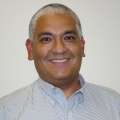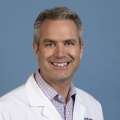Heart Transplant Program
Find your care
Our pediatric cardiologists provide world-class care. To learn more about our services, call .
If you would like to refer a patient to the UCLA Congenital Heart Program for congenital heart surgery or for a discussion of surgical candidacy, please complete this .
The Pediatric Heart Transplant program at UCLA Mattel Children’s Hospital performed our first heart transplant in 1984 under the direction of Dr. Hillel Laks. Since that time, we have performed nearly 500 pediatric heart transplants. Our multidisciplinary team is a coordinated effort between specialized pediatric cardiologists, congenital cardiac surgeons, transplant coordinators/nurse practitioners, dentists, nutrition specialists, psychologists, physical therapists, child development specialists, social workers, and genetic counselors.
The medical director, Dr. Juan Alejos, has led this program since 1992 and surgical direction is provided by congenital heart surgeons Dr. Reshma Biniwale and Dr. Ming Sing Si. Dr. Leigh Reardon (Associate Medical Director), Dr. Nancy Halnon (Director of Cardiomyopathy/Muscular Dystrophies) and Dr. Ryan Williams (Director of Mechanical Assist Program) provide medical support. Surgical expertise is provided by the Director of the Congenital Cardiac Surgery Program Dr. Glen Van Arsdell. Transplant Coordinators/Nurse Practitioners Adrianne Belay and Helen Dutko make up the front line of the team.

The Pediatric Heart Transplant/Heart Failure team has extensive experience in the care of pediatric patients with cardiomyopathy requiring heart transplantation. Patients are evaluated from the newborn period until the age of 21 years and can be evaluated in both the inpatient and outpatient settings. A wide range of patients are evaluated including those with complex congenital heart disease. We have extensive experience in caring for the patient with heart failure providing medical therapies that enable us to avoid or delay the need for heart transplantation. Our team participates in clinical trials pertaining to both the patient with heart failure as well as the care of the post-heart transplant patient. Our experience results in program survival statistics that exceed national averages.
Our team also utilizes state-of-the-art mechanical support ranging from extracorporeal membranous oxygenation (ECMO) to a range of ventricular assist devices for patients from the newborn period to adult-sized individuals. These devices serve to provide circulatory support acting as a bridge to transplantation.
The physical location of UCLA Mattel Children’s Hospital within Ronald Reagan UCLA Medical Center provides many advantages such as an integrated Transitional Program for patients moving from the Pediatric to Adult Heart Transplant Program or other teams throughout the country as they grow and thrive. The unique Transition Program is led by Dr. Leigh Reardon and is a model for programs throughout the transplant community. UCLA’s position as a world leader in pediatric solid organ transplantation provides a wealth of knowledge and support allowing us to provide hope and support to pediatric patients and their families with failing hearts.
Physicians
Related Links
Deanna Kremis and two of her three sons suffer from an inherited heart condition. All three have had life-saving heart transplants and share a unique bond as one of the few families to have three heart transplant recipients. (Source: USA Today)- HRSA Survey Ranks UCLA Heart Transplant Program Best In US
The Health Resources and Services Administration (HRSA) presented UCLA with the award Nov. 3 at its organ donation conference in Grapevine, Texas. The HRSA survey is designed to evaluate and recognize the country's highest performing organ transplant programs. UCLA's was the only heart transplant program in the U.S. to be ranked at the silver level. Among the 744 solid-organ donation programs ranked by the HRSA, only 10 earned silver status, and only one, a liver transplant program in Florida, earned gold.


